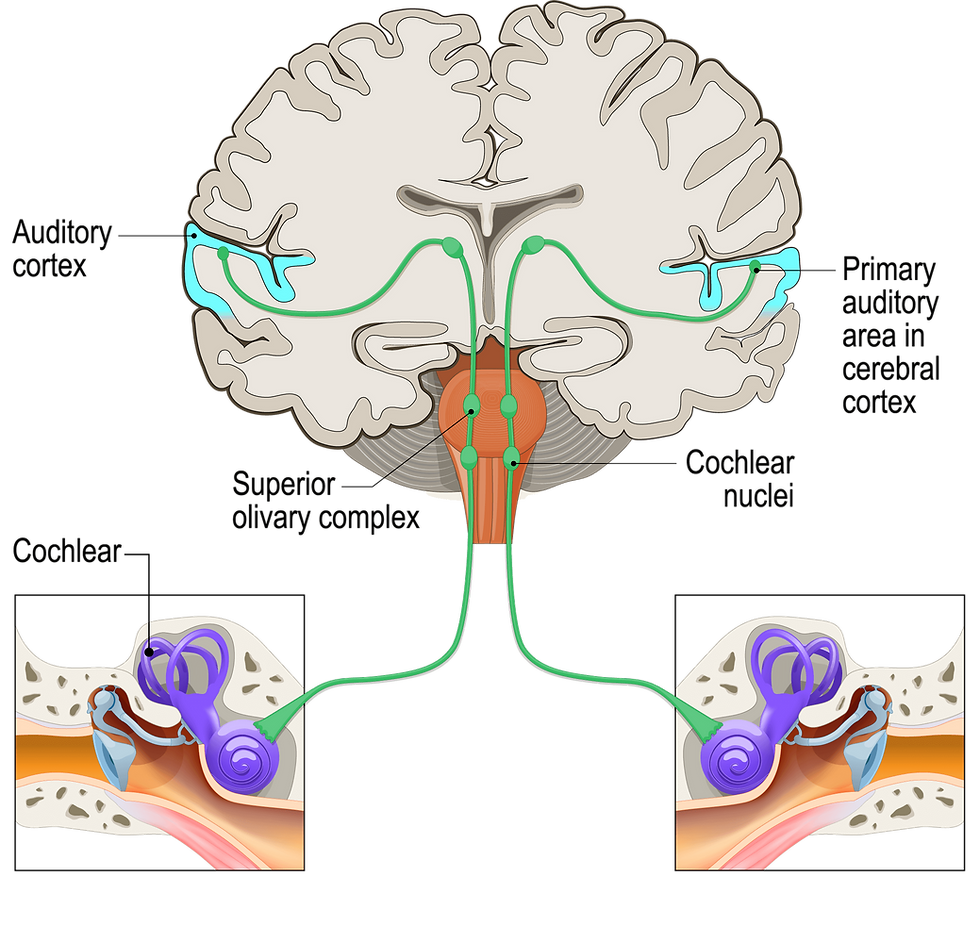🧠 Pediatric Hearing Loss: A Neuro-Cognitive Emergency We Can’t Afford to Miss
- Lovedeep Kholia

- Aug 23, 2025
- 2 min read

When a child struggles to hear, the consequences ripple far beyond the ears. Hearing loss in children is not just a sensory issue—it’s a neuro-cognitive emergency that can derail language development, academic success, emotional well-being, and lifelong potential.
🚨 Why Hearing Loss in Children Is an Emergency
The first few years of life are a critical window for brain development. Auditory input fuels the growth of neural pathways responsible for speech, language, memory, and social cognition. When hearing is compromised, the brain is deprived of essential stimulation—leading to:
Delayed speech and language acquisition
Poor auditory memory and attention
Reduced academic performance
Behavioral challenges and social withdrawal
Long-term cognitive deficits if left untreated
This isn’t just a developmental delay—it’s a neurological detour. And the longer we wait, the harder it becomes to catch up.
🧒 The Hidden Signs: What Parents and Teachers Often Miss
Children rarely say “I can’t hear.” Instead, they adapt—quietly, creatively, and often invisibly. That’s why early signs are easy to overlook:
Inconsistent response to sounds or name-calling
Frequent “what?” or blank stares during conversation
Difficulty following instructions, especially in noisy settings
Speech that’s unclear or delayed compared to peers
Behavioral issues mistaken for attention deficits
These are not personality quirks—they’re red flags. Every missed syllable is a missed opportunity for brain growth.
🧠 Hearing Fuels Thinking: The Brain-Ear Connection
Hearing is a cognitive process. The ear captures sound, but it’s the brain that decodes meaning. In children, this decoding is still under construction. Without clear auditory input, the brain struggles to build language maps, emotional cues, and learning strategies.
Research shows that untreated pediatric hearing loss can lead to:
Auditory deprivation and cortical reorganization

Reduced neural plasticity

Higher risk of academic failure and social-emotional challenges

🩺 Audiologists as Neuro-Developmental First Responders
At Unicare Speech & Hearing Clinic, we treat pediatric hearing loss with the urgency it deserves. Our approach blends clinical precision with compassionate care:
Newborn and school-age hearing screenings

Early amplification and cochlear implant counseling

Parent education and therapy planning
Multilingual, culturally inclusive support
We don’t just restore hearing—we protect futures.
💡 What You Can Do Today
If you’re a parent, teacher, or pediatrician, here’s how you can act:
Refer for a hearing screening at the first sign of delay
Advocate for auditory testing in school readiness programs
Normalize hearing aids and therapy as tools for empowerment
Share this post to raise awareness in your community
Hearing loss in children is a neuro-cognitive emergency. But with timely intervention, it becomes a story of resilience, recovery, and thriving potential.
Let’s listen with urgency. Let’s act with compassion. Let’s give every child the sound foundation they deserve.




Comments